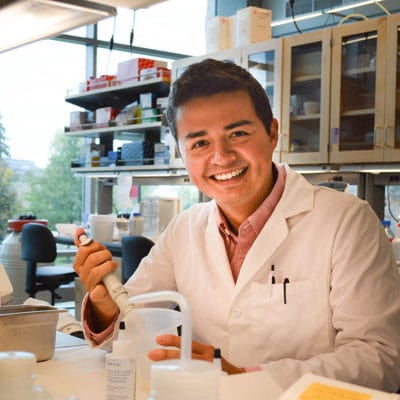School of Education
All of us remember that one teacher growing up who truly inspired us - the one all others must measure up to. More than likely, that’s what brought you to this place today. You want to be like that teacher – you want to inspire others! If that’s your dream, University of Massachusetts Global is where you need to be.
Become the Teacher Who Inspired You
To reach your goals and be prepared for today’s classroom, UMass Global has sought out not only current and former superintendents, principals and educators, but technology leaders with advanced expertise in the classroom. These instructors know the current trends, understand the latest technology and constantly provide feedback to improve methods and techniques to bring the best of everything into the ever-evolving curriculum. Students who desire leadership roles will be prepared for their positions like never before - they will become a technology leader at their site and be familiar with all classroom tools available today. Take everything that UMass Global has to offer and find your way to influence and inspire in your classroom and throughout the country.


University of Massachusetts Global is accredited by the WASC Senior College and University Commission (WSCUC)

University of Massachusetts Global's School of Education is accredited by the California Commission on Teaching Credentialing.
Find Your Degree/Program
Loading
Added Authorization, Autism Spectrum Disorders
Education
This state-approved, autism specialist certificate is a 4-course, 12-unit program providing either a CTC-designated authorization to serve learners with Autism Spectrum Disorders or a Certificate of Completion.
Online
Added Authorization, Multiple Subject Credential
Education
This authorization program, comprised of just two courses, is designed for teachers who already hold a Single Subject Credential in California and want to teach in both multiple and single-subject environments.
Online
Added Authorization, Single Subject Credential
Education
For California teachers who have a single subject teaching credential but want to expand their subject expertise and career options, this added authorization involves just a single class and is accredited by the CTC.
Online
Applied Behavior Analysis (ABA) Graduate Certificate
Education
This online certificate was developed to meet the educational requirements to become a Board Certified Behavior Analyst (BCBA), recognized both nationally and internationally.
Online
BA in Early Childhood Education
Education
With your Bachelor's degree in Early Childhood Education you will gain knowledge, perspective and practical experiences in the field of early childhood education. This degree prepares you for your current workplace and future aspirations.
Online








